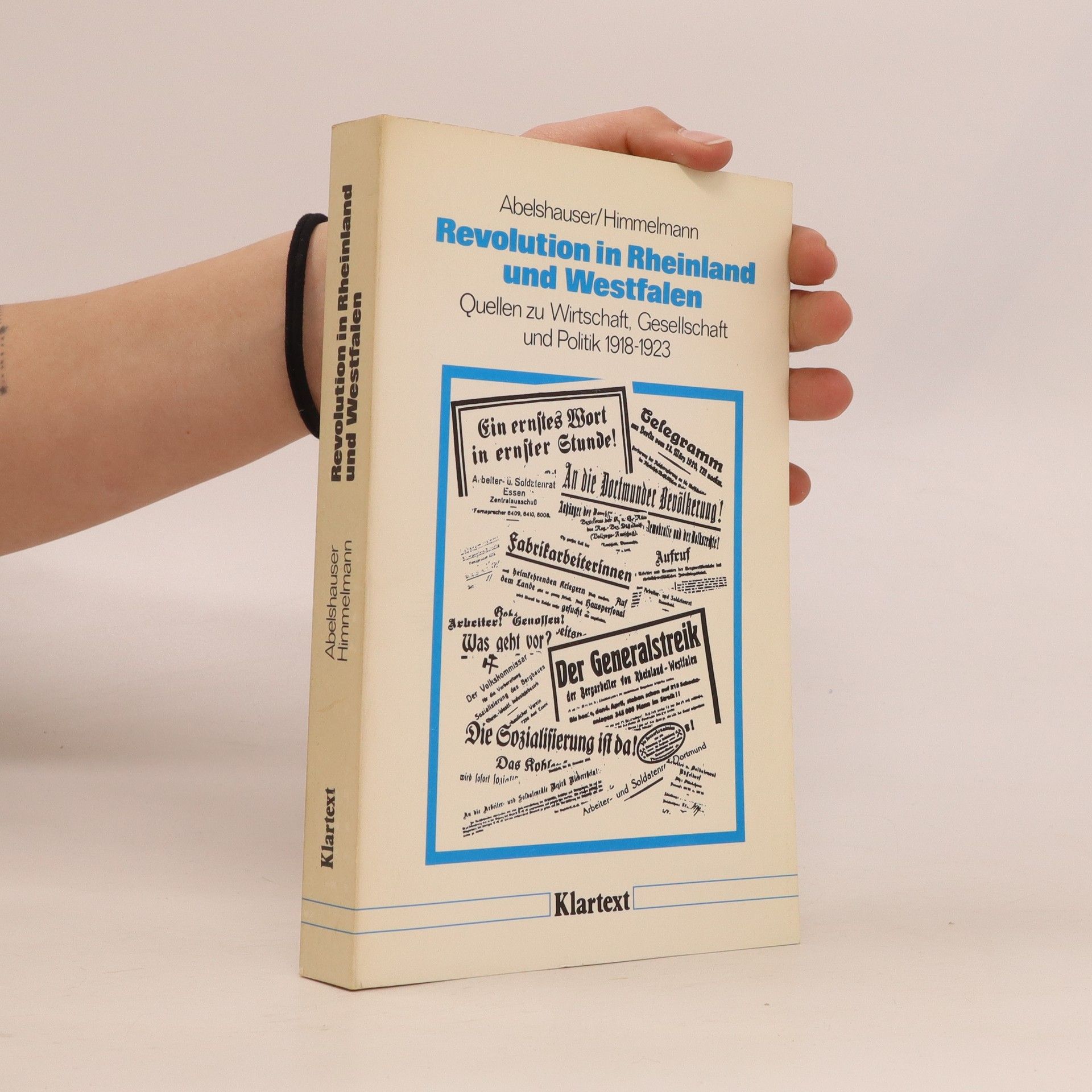Wer ein Wirtschaftssystem reformieren will, sollte seine Geschichte kennen. Werner Abelshauser schildert in diesem Klassiker der Wirtschaftsgeschichte die ökonomische Entwicklung Deutschlands vom Wiederaufstieg nach dem Zweiten Weltkrieg bis zur aktuellen Finanz- und Schuldenkrise. Dabei wird deutlich, wie sehr die wirtschaftlichen Erfolge des Landes durch ein spezifisches soziales Produktionsregime geprägt waren, das durch die Reformen der letzten Jahre in Frage gestellt wurde. Die Abkehr von der «Deutschland AG» und die Öffnung gegenüber dem angloamerikanischen Wirtschaftsmodell bedeuten auch den Verlust spezifischer Kostenvorteile der deutschen korporativen Marktwirtschaft. Jeder, der sich an der Debatte um die Zukunft der deutschen Wirtschaft beteiligen will, sollte dieses Buch gelesen haben.
Werner Abelshauser Books






Wirtschaftsgeschichte der Bundesrepublik Deutschland (1945-1980)
- 186 pages
- 7 hours of reading
Die langen fünfziger Jahre : Wirtschaft und Gesellschaft der Bundesrepublik Deutschland 1949-1966
- 191 pages
- 7 hours of reading
Die etwas andere Industrialisierung
- 320 pages
- 12 hours of reading
Deutsche Wirtschaftsgeschichte
- 619 pages
- 22 hours of reading
Nach dem Wirtschaftswunder
Der Gewerkschafter, Politiker und Unternehmer Hans Matthöfer
- 797 pages
- 28 hours of reading
Werner Abelshauser erschließt die Welt eines Mannes, der wie kein zweiter die Praxis des demokratischen Sozialismus verkörpert. Viele der Herausforderungen, die sich Hans Matthöfer stellten, sind noch immer akut, seine Antworten immer noch aktuell. Sein facettenreiches Leben erlaubt es, die Wirtschaftsgeschichte der Bundesrepublik aus biographischer Perspektive neu zu schreiben. Der 1925 geborene Arbeitersohn war Lehrling, Soldat, Student, Publizist, Diplomat, Leiter der Bildungsabteilung der IG-Metall, Bundestagsabgeordneter, Kämpfer gegen das Franco-Regime, Parlamentarischer Staatssekretär im Ministerium für wirtschaftliche Zusammenarbeit, Forschungsminister, Finanzminister, Postminister, Schatzmeister der SPD, Chef der Gewerkschaftsholding BGAG, Aufsichtsrat und Wirtschaftsberater, kurz, eine Schlüsselfigur der alten Bundesrepublik. Auf dem Höhepunkt seiner politischen Karriere trennte ihn nur ein Herzschlag vom Kanzleramt. Aus seinen Niederlagen – etwa dem Versuch, die Arbeiterschaft durch betriebsnahe Gewerk-schaftspolitik zu mobilisieren (1965) oder mit einer Ökosteuer (1982) die Scheidung von „rot“ und „grün“Deutsche Wirtschaftsgeschichte seit 1945" abzuwenden – lässt sich ebenso viel lernen wie aus seinen Erfolgen. Die Demokratisierung Spaniens, die Humanisierung der Arbeitswelt, der Kampf gegen die Weltwirtschaftskrise der siebziger Jahre und die Rettung des Gewerkschaftsvermögens stehen beispielhaft dafür.
Kulturkampf
Der deutsche Weg in die Neue Wirtschaft und die amerikanische Herausforderung
- 232 pages
- 9 hours of reading
Abelshauser zeigt in seinem mitreißenden Buch das Verbindende, aber auch das Trennende zwischen Deutschland und Amerika - in diesem transatlantischen Kulturkampf der etwas anderen Art. Dabei zeigt sich zunehmend, daß es - anders als die neoklassische Wirtschaftstheorie unterstellt - nicht nur einen Weg gibt, der langfristig die Wettbewerbsfähigkeit auf dem Weltmarkt sichert. „Reform und Entschlackung statt Aufgabe des institutionellen Rahmens - mit dieser Forderung steht Abelshauser mitten in der gegenwärtigen Reformdebatte.“ (Neue Zürcher Zeitung) „Ein Politiker, der auf diese Weise Pfade in die Zukunft sucht, ohne dabei “die Vergangenheit, die nicht vergangen ist„, zu vergessen, könnte viel von Werner Abelshauser lernen.“ (Literaturen) „. spannend zu lesen, vor allem weil Abelshauser über die ganzen Brüche der deutschen Geschichte eine verblüffende Kontinuität beschreiben kann.“ (Stuttgarter Zeitung)
Revolution in Rheinland und Westfalen
- 259 pages
- 10 hours of reading
Zur Vorbeugung der Armuth--
Der Kreis Herford im Spiegel seiner Sparkasse 1846-1996
- 247 pages
- 9 hours of reading


